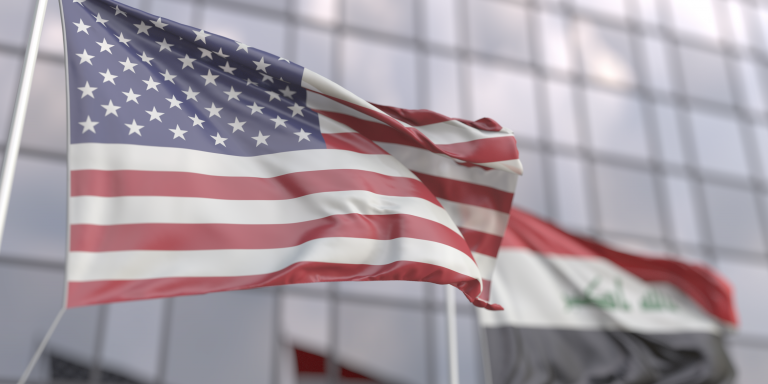
Trump administration policy toward Iraq was a subset of the “maximum pressure” strategy applied toward neighboring Iran. U.S. officials evaluated Iraq’s leaderships primarily on its willingness to rein in the several Iran-backed Shia militias that were instrumental in beating back the Islamic State challenge but later sought the expulsion of U.S. forces from Iraq. The Trump Administration also pressured Iraqi officials to find alternative sources of electricity and natural gas and to impound payments to Iran for those commodities.
Based on its actions to date, the Biden Administration appears to be diverging from Trump Administration efforts to harness Iraq policy to a broader, high-priority effort to pressure Iran. In 2019, the Trump Administration backed the accession of Mustafa al-Kadhimi to the prime ministership as a nationalist who would forcibly rein in several Iran-backed Iraqi Shia militias that report to Iran’s Islamic Revolutionary Guard Corps – Qods Force (IRGC-QF). The Biden Administration, by contrast, appears to assess that the Iran-backed militias still pose a threat to al-Kadhimi’s authority – and that U.S. actions should try to avoid stoking Iran-instigated opposition to him and to U.S. forces in Iraq. In the first Iran-backed challenge to U.S. forces in Iraq – a February 15 fatal rocket attack on the airport in northern Iraq used by U.S. forces – the Biden Administration chose to retaliate against the militia perpetrators by striking their arms storehouses in Syria – not in Iraq.
Assessing that the U.S. troop presence in Iraq is a lightning rod for Iran-backed attacks, the Biden administration has apparently decided to keep the U.S. military footprint in Iraq relatively small. The Administration has not announced any reversal of the late Trump administration reduction of the U.S. continent in Iraq from nearly 6,000 forces to the current level of about 2,500. Instead, the new Administration has backed expanding the NATO training mission in Iraq from the current 500 military personnel to as many as 4,000. The significant increase will enable NATO trainers and advisers to advise Iraqi forces and security personnel in many more institutions and in locations outside Baghdad. Yet, because non-U.S. NATO countries are not seen by Iran as inherently adversarial, the enlarged NATO contingent is not likely to be targeted by Iran and its Iraqi allies. The NATO trainers will help Iraq government forces continue to suppress the Islamic State organization and, by assisting with security sector reform, potentially help the al-Kadhimi government marginalize the Iran-backed militias. To that extent, the enhanced NATO deployment might serve the U.S. interest of limiting Iranian influence in Iraq more effectively than did the U.S. forces that were deployed partly for that purpose. Even though the Iran-backed militias ad their commanders remain powerful forces, the successes of the U.S. and NATO force deployments against the Islamic State were in evidence during the landmark March visit by the Pope. His appearances in northern Iraq demonstrated that many Iraqi Christians have returned to villages in Iraq that were devastated and depopulated during the 2014-2018 period of Islamic State control of those areas.
On the economic front, the Biden administration appears to be downplaying Trump administration efforts to try to compel Iraq to help pressure Iran economically. Despite Iraq’s dependence on Iranian gas supplies to fuel its electricity plants, the Trump administration repeatedly threatened to end the legislative waivers that Iraq needed to continue importing Iranian gas without U.S. financial penalty. The Biden administration, to date, has not repeated its predecessor’s insistence that Iraq instead import gas from the Gulf or other Arab states. The Biden administration reportedly is also considering allowing Iraq to release to Iran a portion (about $1 billion) of the proceeds of Iranian gas deliveries to Iraq. At the insistence of the Trump administration, the funds have been held in escrow in Iraq’s Trade Bank. Iran would use any funds released to buy medical supplies needed to respond to the COVID-19 pandemic. Economically, politically, and militarily, the Biden administration appears committed to helping Iraq develop its national identity, sovereignty, and state power rather than using Iraq as an instrument in U.S. policy toward Iran.
